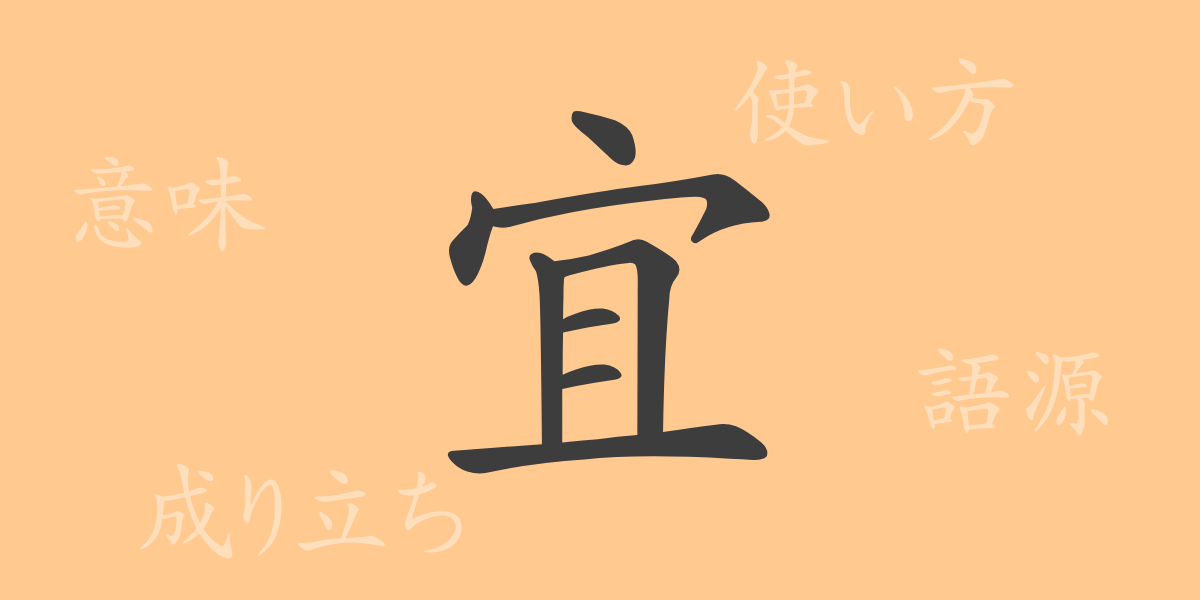The Japanese language features a diverse array of kanji that intricately express emotions and situations. Among them, “宜” (gi) is a character frequently used in our daily lives, yet its origins and profound meanings are not widely known. In this article, we delve into the charm of “宜” (gi), exploring its origins, modern usage, and the idioms and expressions that incorporate this kanji.
Origin of the Kanji “宜” (語源)
The kanji “宜” (gi) originates from ancient China. It began with the seal script, combining “宀” (ukanmuri), representing a roof, and “儿,” symbolizing a person. It depicts a person resting under a roof, leading to meanings such as “appropriate” and “suitable.” Over time, it has come to signify propriety and etiquette in more complex cultural and social contexts.
Meaning and Usage of “宜” (gi)
The kanji “宜” (gi) means “appropriate,” “suitable,” or “good.” In Japanese, it is often used to express respect or to recommend something politely. For example, the phrase “宜しくお願いします” (yoroshiku onegai shimasu) conveys respect and expectation, making it an essential expression in the business world.
Reading, Stroke Count, and Radical of “宜” (gi)
Understanding the readings and structure of the kanji “宜” (gi) is important for a correct understanding.
- Reading: The on-yomi (Chinese reading) is “ギ” (gi), and the kun-yomi (Japanese reading) is “よろしい” (yoroshii) or “いい” (ii).
- Stroke count: It consists of 8 strokes in total.
- Radical: The radical is “宀” (うかんむり, ukanmuri).
Idioms, Proverbs, and Expressions Using “宜” (gi)
There are many idioms, proverbs, and expressions in Japanese that include “宜” (gi). These add depth and politeness to sentences and conversations when used in appropriate contexts.
- 宜しくお願いします (yoroshiku onegai shimasu) – An expression of respect and request.
- 不宜 (ふぎ, fugi) – Meaning “inappropriate” or “unsuitable.”
- 宜しくない (よろしくない, yoroshiku nai) – Meaning “not good” or “unsuitable.”
- 宜しくご査収ください (よろしくごさしゅうください, yoroshiku go sashuu kudasai) – A polite expression used when asking someone to understand or accept reported or conveyed information.
Summary on “宜” (gi)
The kanji “宜” (gi), as its form and meaning suggest, reflects the Japanese culture’s emphasis on propriety and appropriateness. Words and expressions containing this kanji are frequently used in both business and daily communication. By understanding the overview, idioms, and expressions related to “宜” (gi) introduced in this article, you can enrich your Japanese expressions even further.

























